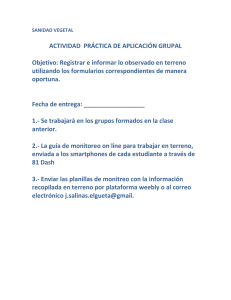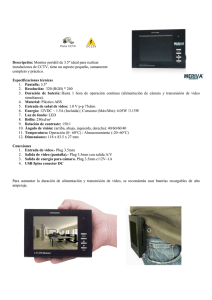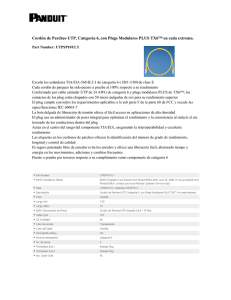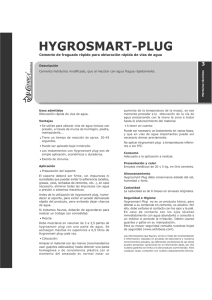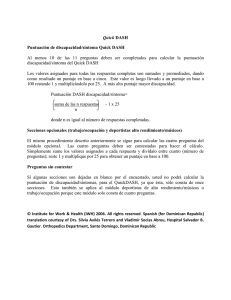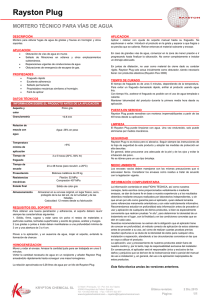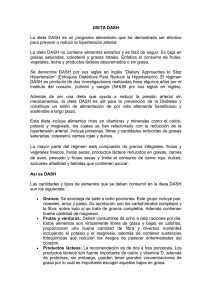From Ruby to Elixir Web Applications
Anuncio
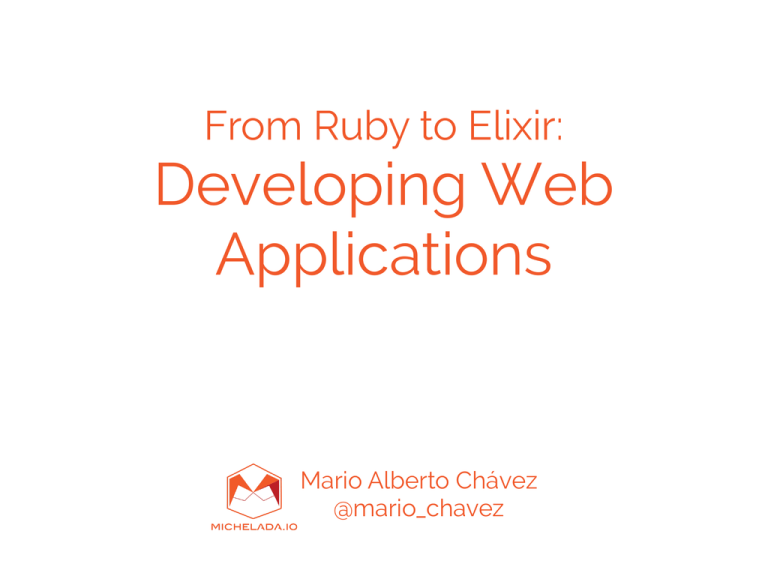
From Ruby to Elixir:
Developing Web
Applications
Mario Alberto Chávez
@mario_chavez
Funcional
Moderno
Dinámico
Distribuido
Tolerante a fallas
Basado en Erlang VM
“A web server is a natural problem
for a functional language to solve”
“Programming Phoenix”
Phoenix Framework
Productivo, Confiable y Rápido
Implementa MVC
Aunque la parte M cambia
radicalmente
MIX
Herramienta base para compilar
y ejecutar tareas
mix phoenix.new
mix ecto.migrate
mix deps.get
mix compile
DEPENDENCIAS
Declaradas en mix.ex y manejadas
con comandos de mix
[{:phoenix, "~> 1.0.3"},
{:phoenix_ecto, "~> 1.1"},
{:postgrex, ">= 0.0.0"},
{:phoenix_html, "~> 2.1"},
{:scrivener, "~> 1.0"},
{:phoenix_live_reload, "~> 1.0", only: :dev},
{:cowboy, "~> 1.0"}]
DEPENDENCIAS
Directorio en http://hex.pm
VIDA DE UN REQUEST
connection
|> endpoint
|> router
|> controller
|> common_services
|> action
|> process_data
|> view
|> template
PLUGS
Cada paso es una función que se
conecta a otra, toma un conn y
regresa una versión modificada de
conn
f(conn)
PLUGS
conn es un struct que contiene
información del request y response
%Plug.Conn{adapter: {Plug.Adapters.Cowboy.Conn, :...}, assigns: %{},
before_send: [#Function<1.23820878/1 in Plug.Logger.call/2>,
#Function<0.109114241/1 in
Phoenix.LiveReloader.before_send_inject_reloader/1>],
body_params: %{}, cookies: %Plug.Conn.Unfetched{aspect: :cookies},
halted: false, host: "localhost", method: "GET", owner: #PID<0.509.0>,
params: %{}, path_info: ["api", "conferences"], peer: {{127, 0, 0, 1},
57547},
port: 4000,
…}
PLUGS
Si un Plug es solamente una
función, entonces la aplicación
Web es un pipeline de plugs.
ESTRUCTURA
priv
├── repo
│ └── migrations
└── static
├── css
├── images
└── js
web
├── channels
├── controllers
├── models
├── static
│ ├── assets
│ │ └── images
│ ├── css
│ ├── js
│ └── vendor
├── templates
│ ├── layout
│ └── page
└── views
config
lib
└── present
test
├── channels
├── controllers
├── fixtures
├── models
├── support
└── views
AMBIENTES
Diferentes configuraciones
production
development
test
AMBIENTES
Existe una configuración general y
otra complementaria por ambiente
config.exs
config :present, Present.Endpoint,
url: [host: "localhost"],
root: Path.dirname(__DIR__),
render_errors: [accepts: ~w(html json)]
dev.exs
config :present, Present.Endpoint,
http: [port: 4000],
debug_errors: true,
code_reloader: true,
cache_static_lookup: false
ENDPOINT
Es la frontera entre el Web Server y
nuestra aplicación.
defmodule Present.Endpoint do
use Phoenix.Endpoint, otp_app: :present
plug Plug.RequestId
plug Plug.Logger
plug Plug.Parsers,
parsers: [:urlencoded, :multipart, :json],
pass: ["*/*"],
json_decoder: Poison
plug Plug.MethodOverride
plug Plug.Head
ROUTER
Contiene la tabla de rutas y …
más plugs
defmodule Present.Router do
use Present.Web, :router
pipeline :browser do
plug :accepts, ["html"]
plug :fetch_session
plug :protect_from_forgery
end
scope "/", Present do
pipe_through :browser # Use the default browser stack
get "/", PageController, :index
resources "/events", EventController, except: [:index, :show]
end
ROUTER
De las rutas se generan funciones
*_path y *_url
mix phoenix.routes
atom_path GET
sitemap_path GET
post_path GET
post_path GET
post_path GET
post_path GET
post_path POST
/atom.xml
/sitemap.xml
/admin
/admin/:id/edit
/admin/new
/admin/:id
/admin
Dash.AtomController :index
Dash.SitemapController :index
Dash.PostController :index
Dash.PostController :edit
Dash.PostController :new
Dash.PostController :show
Dash.PostController :create
CONTROLLER
Ejecuta las acciones y genera la
respuesta
defmodule Dash.PageController do
use Dash.Web, :controller
import Ecto.Query, only: [from: 2]
alias Dash.Post
plug :scrub_params, "post" when action in [:create]
def index(conn, _params) do
posts = Repo.all(Post)
render(conn, "index.html", posts: posts)
end
end
MIGRATION
DSL para modificar la base de datos.
Versionadas y ordenadas.
defmodule Dash.Repo.Migrations.CreatePost do
use Ecto.Migration
def change do
create table(:posts) do
add :title, :string
add :body, :text
add :permalink, :string
add :tags, {:array, :string}
timestamps
end
end
end
MODEL
El modelo está desconectado de la
base de datos
Schema
Changeset
Asociaciones
Query composition
MODEL
No hay introspección
schema "posts" do
field :title, :string
field :body, :string
field :permalink, :string
field :tags, {:array, :string}
field :published, :boolean, default: false
field :published_at, Ecto.DateTime
field :tags_text, :string, virtual: true
belongs_to :user, Dash.User
timestamps
end
@required_fields ~w(title)
@optional_fields ~w(body permalink tags published published_at user_id)
MODEL
Changeset nos ayuda a generar los
cambios en el modelo y aplicar
validaciones
def changeset(model, params \\ :empty) do
model
|> cast(params, @required_fields, @optional_fields)
|> inflate_tags
|> update_published
end
iex> changeset = Post.changeset(%Post{}, post_params)
MODEL
Changeset es autocontenido
id = 1
query = from u in User, where: u.id == ^id
user_params = %{nickname: “mario.chavez"}
changeset = User.changeset(user, user_params)
%Ecto.Changeset{action: nil, changes: %{nickname: "mario.chavez"}, constraints: [],
errors: [], filters: %{},
model: %Dash.User{__meta__: #Ecto.Schema.Metadata<:loaded>, bio: "Rubyst",
id: 1, inserted_at: #Ecto.DateTime<2015-09-17T19:08:21Z>,
name: "Mario Alberto Chavez", nickname: "mario_chavez",
posts: #Ecto.Association.NotLoaded<association :posts is not loaded>,
social: %{"github" => "http://github.com/mariochavez",
"twitter" => "http://twitter.com/mario_chavez"},
updated_at: #Ecto.DateTime<2015-09-17T19:08:21Z>}, optional: [:bio, :social],
opts: nil, params: %{"nickname" => "mario.chavez"}, repo: nil,
required: [:name, :nickname],
types: %{bio: :string, id: :id, inserted_at: Ecto.DateTime, name: :string,
nickname: :string,
posts: {:assoc,
%Ecto.Association.Has{cardinality: :many, defaults: [], field: :posts,
on_cast: :changeset, on_delete: :nothing, on_replace: :raise,
owner: Dash.User, owner_key: :id, queryable: Dash.Post, related: Dash.Post,
related_key: :user_id}}, social: :map, updated_at: Ecto.DateTime},
valid?: true, validations: []}
MODEL
Podemos generar “fragmentos” de
queries para hacer “query composition”
defmodule Present.Event do
def conference_events(query, conference) do
from e in query,
where: e.conference_id == ^conference.id
end
end
iex> query = Event.conference_events(Event, conference)
iex> query2 = from e in query, order_by: [asc: e.name]
iex> Event.conference_events(Event, conference)
|> order_by([e], [asc: e.name])
MODEL
No hace preload de asociaciones,
explícitamente tenemos que llamar
preload
MODEL
Ecto entiende de constraints en
la base de datos y puede registrar
los errores
REPO
Repo maneja la conexión a la
base de datos.
all(query)
insert(changeset)
get(query, params)
update(changeset)
one(query, params)
get_by(query, params)
delete(keyword)
TEMPLATES
Son plantillas EEx, código HTML y
código Elixir
<%= for post <- @posts do %>
<article id='<%= "post_#{post.id}" %>' class='content post'>
<h2><a href='<%= page_path(@conn, :show, post.permalink) %>'><%=
post.title %></a></h2>
<span class='author'><%= "By #{author_name(post.user)}" %></span>
<span class='time'><%= human_date(post.published_at) %></span>
<p><%= post.summary %></p>
</article>
<% end %>
TEMPLATES
Existen diversos “helpers”
<%= form_for @changeset, @action, fn f -> %>
<div class="form-group">
<%= label f, :title, "Title", class: "control-label" %>
<%= text_input f, :title, class: "form-control" %>
</div>
<div class="form-group">
<%= label f, :summary, "Summary", class: "control-label" %>
<%= textarea f, :summary, class: "form-control" %>
</div>
TEMPLATES
Se compilan como métodos en las
vistas.
TEMPLATES
Todo controlador se acompaña
de una vista.
TEMPLATES
Podemos usar “Layouts” o parciales
VIEWS
Contienen helpers y se encargan de
hacer el render de las templates
defmodule Dash.PageView do
use Dash.Web, :view
def human_date(date) do
{:ok, date} = Ecto.DateTime.dump(date)
Chronos.Formatter.strftime(date, "%B %d, %Y")
end
def render_author(conn, author) do
render_existing(Dash.PageView, "author.html",
%{conn: conn, author: author})
end
end
CHANNELS
Comunicación en tiempo real
Channel Socket
Message
Channel Route
Transport
Channel
Transport Adapter
PubSub
Client libraries
NAMING CONVENTION
Simple: Todos los nombres son en
singular.
ASSETS
Brunch y Nodejs procesan los assets
TESTING
ExUnit es un framework básico
de unit testing
defmodule Present.EventTest do
use Present.ModelCase
use EventFixture
alias Present.Event
@valid_attrs base_attrs
@invalid_attrs %{}
test "changeset with valid attributes" do
changeset = Event.changeset(%Event{}, @valid_attrs)
assert changeset.valid?
end
Elixir y Phoenix han sido una
experiencia divertida
REFERENCES
-
http://elixir-lang.org/
https://pragprog.com/book/elixir/
programming-elixir
http://www.phoenixframework.org/
https://pragprog.com/book/phoenix/
programming-phoenix
Slack: https://elixir-lang.slack.com/
Gracias
Mario Alberto Chávez
@mario_chavez
